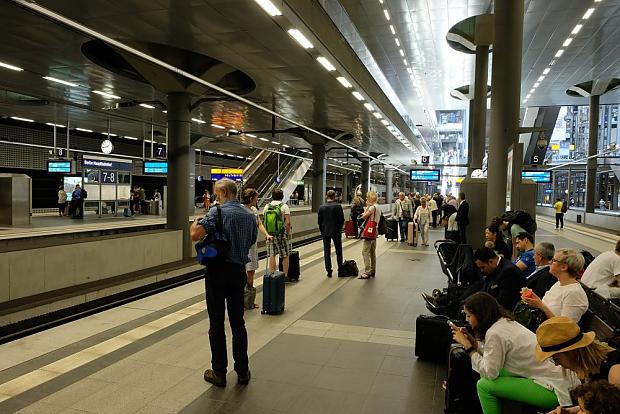Great result for rail passengers' rights
Great result for rail passengers' rights

The European Parliament voted today by a large majority to improve rail passengers' rights. Expressing his delight at the result, SP Euro-MP Dennis de Jong, said: “Despite attempts by the rail companies' lobby to weaken my proposal, it was accepted in full: better compensation in the event of delay and more immediate support for people with limited mobility.” Referring to the Netherlands' own national carrier, he said that “the NS can no longer hide behind 'falling leaves' or 'frozen points'. Provided the Parliament's report is accepted in negotiations with the Council, serious delays will mean the passenger has a right to assistance and compensation”.
In the proposal from the European Commission, railway operators would still be able to claim that they were victims of force majeure, for example blaming bad weather. “I'm really please that we got rid of that,” said De Jong. “The stranded traveller will no longer be the fall guy, and the rail companies will have to accept their responsibility. Any delay of longer than an hour will be subject to financial compensation. In addition, replacement transport must be offered, and if necessary hotel costs paid. Passengers who want to take their bike onto the train have also won the right to do so. From two years after the adoption of this regulation, rail companies will be obliged to incorporate bicycle racks into all new or reconstructed trains. This is good for the environment and it's about time it was introduced.”
For passengers with reduced mobility, assistance must be available to enable them to travel immediately. “The Commission proposal states that this group of people will be required to give 48 hours notice when they wish to travel,” De Jong noted. “That's pure and simple discrimination in comparison to other passengers. The Parliament wants substantial improvements. All stations carrying more than 10,000 passengers per day must be able to offer immediate assistance. Smaller stations will still be able to impose periods of notice, but nothing like as long as that proposed by the Commission, varying instead from three to twelve hours, with the latter applying only to very small stations.”
Before any of this can become law, negotiations must be held between the Parliament and the Council of Ministers, which directly represents the member states. “I'll be taking part in those too,” De Jong noted, promising that “rail passengers can count on me.”
- See also:
- Europe
